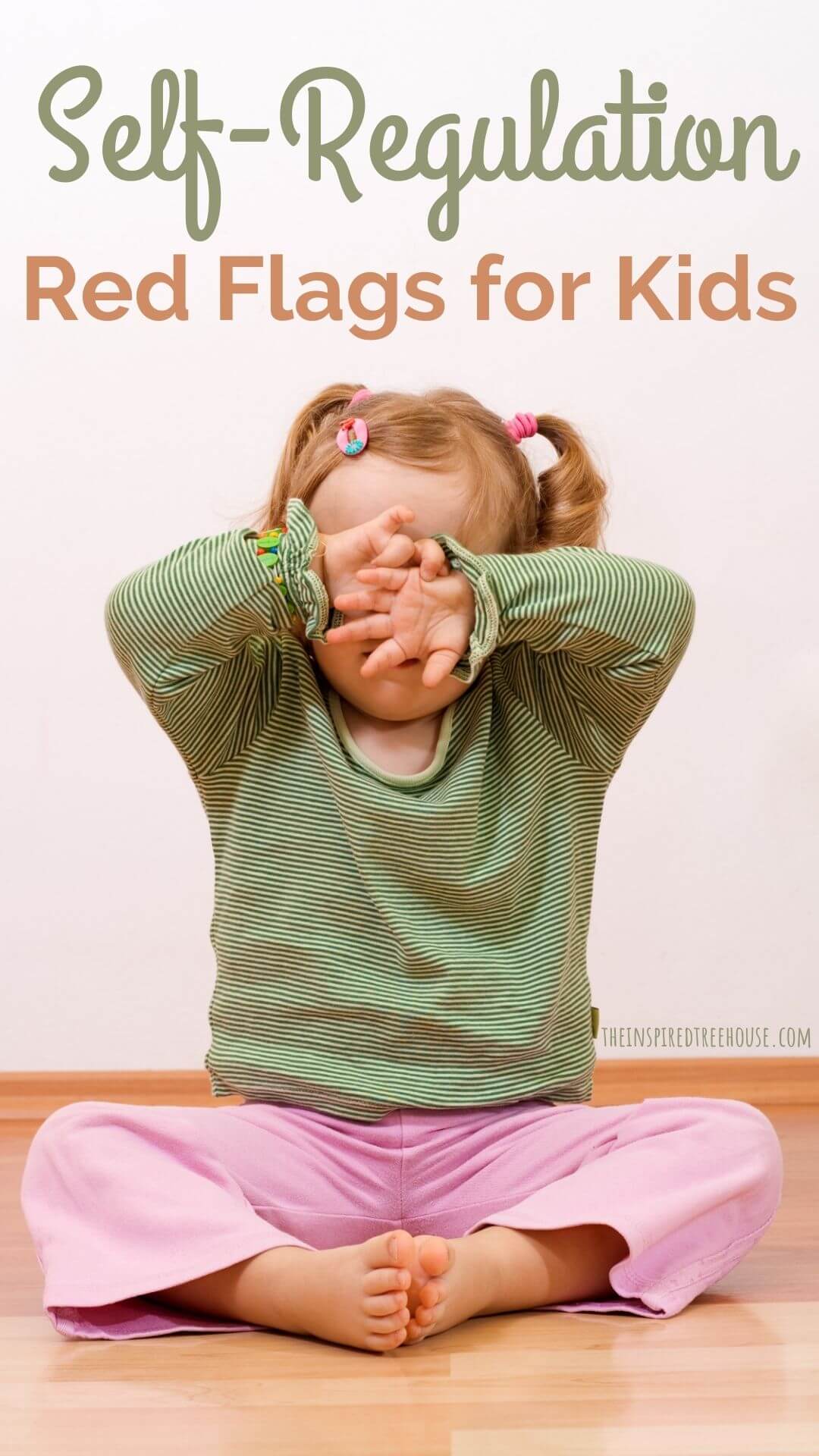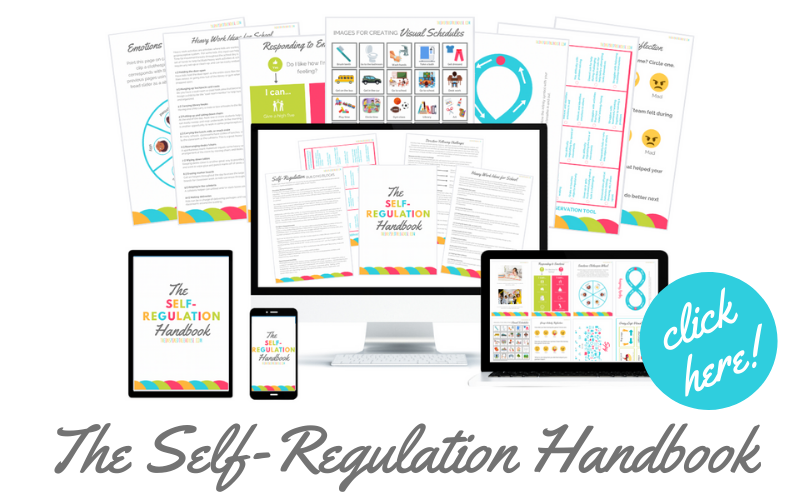These child behavior and self-regulation red flags may indicate that a child needs extra help or support to manage behaviors and self-regulation.
Why is Child Behavior & Self-Regulation So Important?
We believe that without these social/emotional pieces in place, kids are not able to use motor, language, cognitive, and other skills in a functional way in their everyday lives.
The first step? Identifying the kids who need help! And that’s what today’s post and free printable are all about.
Self-regulation is a complex skill, making it difficult to document and track kids’ progress. These child behavior and self-regulation red flags can help parents, teachers, and other professionals get a handle on how a child is performing with different areas of self-regulation, which is helpful for evaluations, goal-setting, and progress monitoring.
It is important to remember that all kids have their own unique self-regulation strategies and techniques that work best for them. These strategies and approaches can vary based on temperament, personality, sensory processing needs, neurodivergence, exposure to trauma, developmental delays, and other aspects of the individual.
Below are some child behavior and self-regulation red flags that may indicate that a child requires additional support. Be sure to grab the free printable below!
Child Behavior & Self-Regulation Red Flags
Behavior
-Acts overly silly or “out of control”
-Has frequent tantrums/meltdowns
-Struggles with transitions between activities
-Demonstrates physical behaviors (hitting, throwing, etc.) when upset
Motor Skills
-Has difficulty walking in line with peers
-Has difficulty maintaining body space
-Often moves too quickly
-Has difficulty regulating the force and speed of movements
-Frequently falls or runs into objects or others
Social Skills
-Has difficulty taking turns and sharing
–Talks too loud, stands too close, or touches others
-Does not notice or identify emotions in self or others
-Struggles with activities that have teams/rules/winning/losing
Cognitive & Executive Functioning
-Struggles with time management, and planning
-Seems inflexible or rigid with plans, routines, and behaviors
-Doesn’t ask for help during challenging activities or asks for help before attempting tasks independently
-Struggles with following multi-step instructions
A Note About Red Flags
It’s important to note that the intention of this red flags list is not to identify areas in which a child is falling short with behavior or self-regulation. Instead, the purpose of recognizing red flag behaviors is to identify areas in which we as caregivers and service providers can do better to support the children in our care. As with all interventions, we must consider both the child’s skills and the way the setting is impacting skill development. We can work on foundation skills to try to improve a child’s self-regulation skills and we can implement modifications and accommodations to further support these skills.
When to Get Help
Many children struggle with behaviors and self-regulation challenges at one time or another during development. Challenging child behavior is common, especially for toddlers and preschoolers. However, for some children, self-regulation struggles can become so intense and pervasive that a child has frequent difficulty with:
-Interacting with others
-Participating successfully at school
-Going out in public
-Tolerating everyday routines and situations
-Attending family and other social events
-Getting an adequate amount of sleep
In these cases, it is beneficial to seek support and guidance from a child development professional. Typically, the best place to start is with your pediatrician who can refer you and your child to the appropriate professional to support your needs. This may be an occupational therapist, a counselor or other mental health provider, or another type of specialist who has experience with self-regulation and child behavior.
Learn more about what the self-regulation research says about how to support kids with regulation concerns!
Looking for more information about how to support your child? Find all of our top child development resources for parents here.

Latest posts by Claire Heffron (see all)
- Cute Zipper Bags for Therapists - April 18, 2024
- Fairy Tale Games and Toys - April 12, 2024
- The Best Emotional Regulation Books for Kids - April 8, 2024


